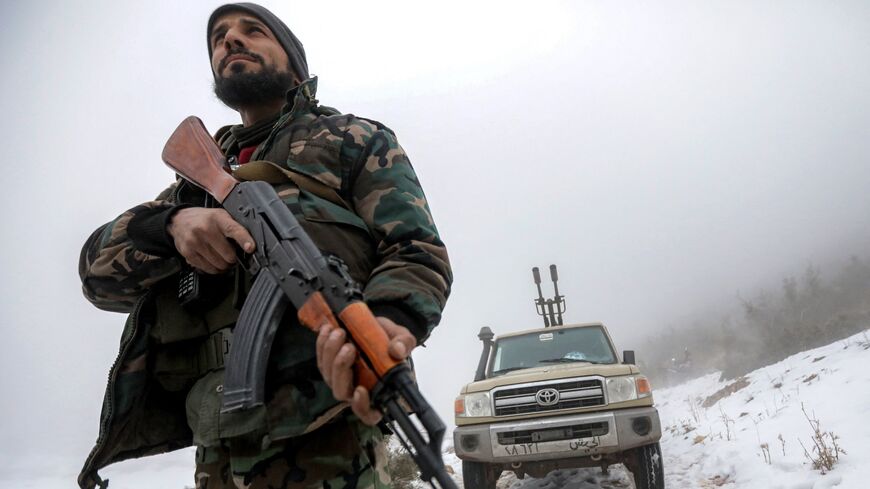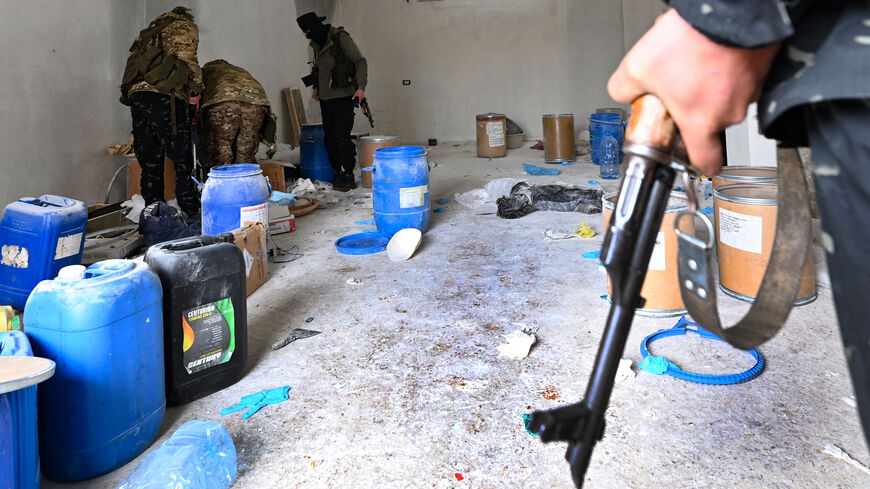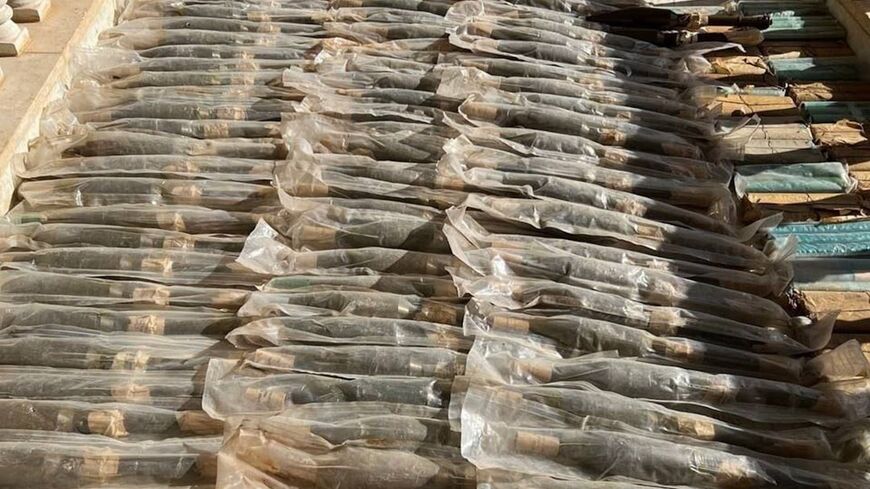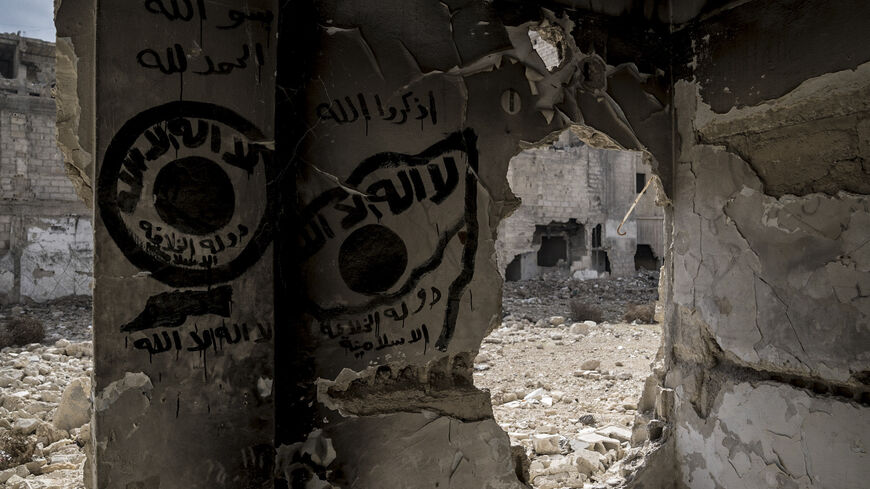Syria claims Hezbollah cell plotting attacks arrested in Damascus: What we know
Syrian authorities have announced the arrest of a Hezbollah cell in Damascus.
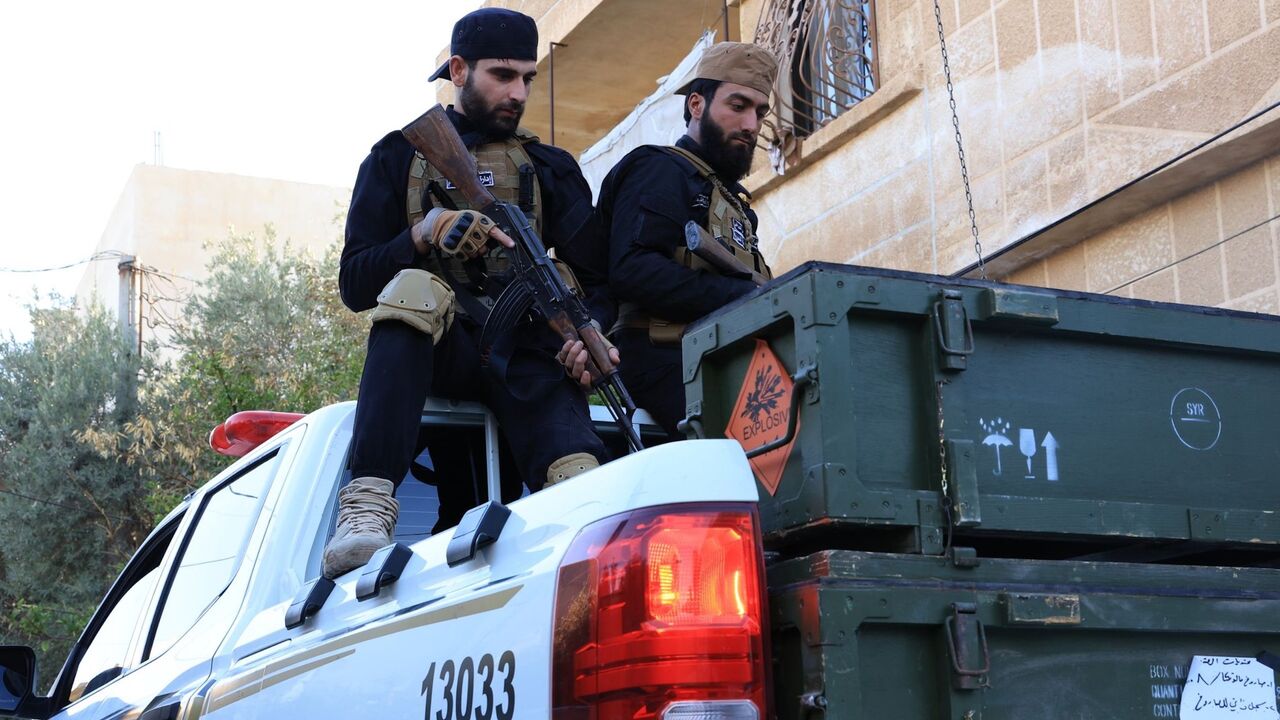
Syria’s authorities announced Thursday the arrest of a cell affiliated with the Lebanese paramilitary group Hezbollah in Damascus, in the latest move targeting the Iran-backed group following the fall of its ally, the Assad regime, late last year.
What happened: The commander of Internal Security in Damascus province, Ahmed al-Dalati, said in a statement that specialized units in cooperation with the General Intelligence Directorate captured several members of the Hezbollah cell that were active in the towns of Sasa and Kanaker in the western countryside of Damascus. Photos released by Syrian authorities appeared to show five detainees.
According to Dalati, all cell members had received training in camps in neighboring Lebanon and were planning operations inside Syria that threatened its stability and the safety of its people.
Several weapons including missile launchers, 19 Grad missiles and anti-tank missiles and large quantities of various kinds of ammunition were confiscated during the operation, he added.
أسلحة وذخائر ضبطتها قيادة الأمن الداخلي، بالتعاون مع جهاز الاستخبارات العامة، خلال العملية الأمنية في بلدتي سعسع وكناكر بريف دمشق الغربي، شملت قواعد لإطلاق الصواريخ، وصواريخ مضادة للدروع، و 19 صاروخًا من طراز "غراد"، إلى جانب أسلحة فردية وكميات كبيرة من الذخائر المتنوعة. pic.twitter.com/HNY562Di19
— وزارة الداخلية السورية (@syrianmoi) September 11, 2025
The Syrian Interior Ministry later published photos of five of the alleged cell members, whom it said “were proven to be involved in planning terrorist attacks that threaten the country's stability.”
The ministry said the suspects have been referred to relevant authorities for further investigation.
Neither Hezbollah nor Lebanese authorities have commented on the arrests so far.
Why it matters: Hezbollah, Iran’s main proxy in the region and once considered Lebanon’s most powerful non-state armed group, now finds itself under pressure in both Lebanon and Syria after it emerged weakened from its 13-month war with Israel last November and following the fall of its longtime ally, President Bashar al-Assad.
Since the fall of Assad at the hands of a rebel offensive last December, Syria’s new authorities, led by President Ahmed al-Sharaa, have been leading a series of operations against alleged Hezbollah members in Syria accused of planning attacks and running smuggling networks along the porous 330-kilometer (205-mile) Lebanese-Syrian border.
In March, Syrian security forces arrested several people said to belong to a Hezbollah-affiliated cell in the Sayyida Zainab area in the countryside of Damascus, also confiscating weapons and ammunition. The suspects were accused of planning attacks in the area.
During another operation in the al-Qutayfah area in the northern countryside of Damascus in February, several individuals were detained over their alleged involvement in selling and smuggling weapons to Hezbollah in Lebanon.
Syrian security forces have also been carrying out regular raids dismantling Captagon factories and arresting drug smugglers mainly near the border with Lebanon.
The crackdown on drug manufacturing and trafficking in Syria has led to several rounds of clashes between Syrian security forces and members of Lebanese clans suspected of taking part in smuggling operations over the past few months.
Following two days of clashes along the Lebanon-Syria border that left 10 people dead in late March, the two countries reached a ceasefire under which they agreed to boost coordination to maintain security on the border.
Background: Hezbollah directly intervened in the Syrian war in 2013, deploying fighters inside Syria to battle alongside Assad’s forces against rebel forces. The group said at the time that the fighters, who were first sent to border towns, including Qusayr, were there to support Assad’s forces against Islamist extremists and to prevent Syrian militants from controlling areas near the border with Lebanon.
The group quickly expanded its presence in Syria, with experts estimating that around 8,000 fighters were deployed inside the country at the height of the civil war.
While Hezbollah has not officially announced a recall from Syria, several reports suggest that its fighters were pulled out during the rebel advances toward Damascus in December, just days before the fall of the regime. Lebanese security sources had told Reuters back in December that all Hezbollah members left Syria, while another Syrian military source told the same news outlet that around 150 armored vehicles carrying hundreds of Hezbollah fighters had left the city of Qusayr.
Throughout the civil war, Hezbollah also relied on land routes through Syria to smuggle weapons and funds from Iran into Lebanon, a corridor facilitated by Assad.
Know more: The latest operation in Damascus coincides with talks between Lebanese and Syrian committees that began in Damascus on Monday to discuss the fate of Lebanese citizens missing in Syrian prisons and Syrians held in Lebanon.
The committees were formed earlier this month after a Syrian delegation that included former ministers visited Beirut on Sept. 1, and were tasked with addressing long-standing issues between the two countries such as border demarcation, smuggling, and detainees.
Speaking during a meeting in Damascus with a delegation of Arab media leaders and officials on Aug. 24, Sharaa addressed relations between Syria and Lebanon, expressing his hope for a “state-to-state relationship with Lebanon, based on economic solutions, stability and mutual interest.”
Commenting on Hezbollah, the Syrian leader said, “We have moved past the wounds that Hezbollah caused Syria and we chose not to continue the fight after the liberation of Damascus.”

